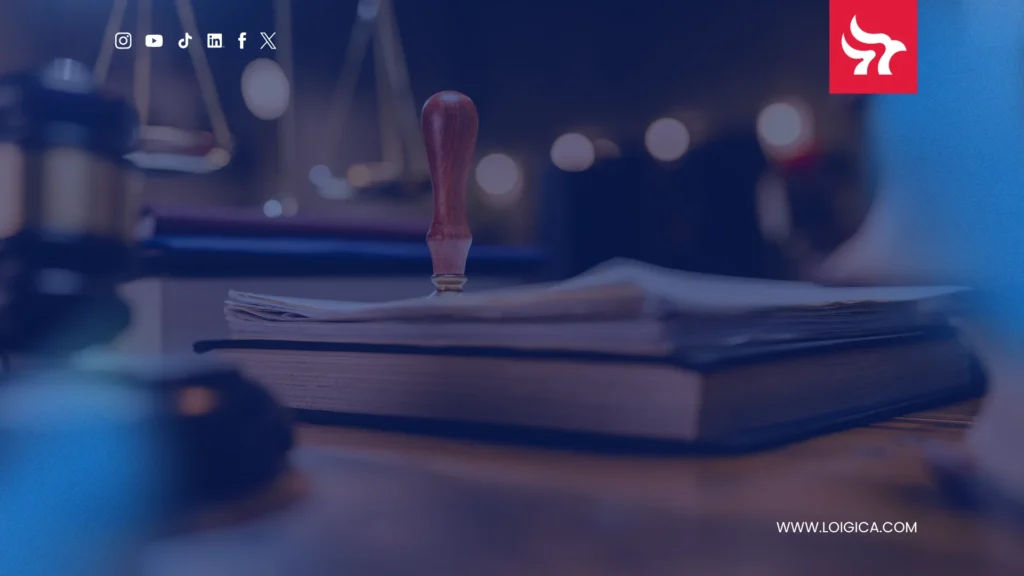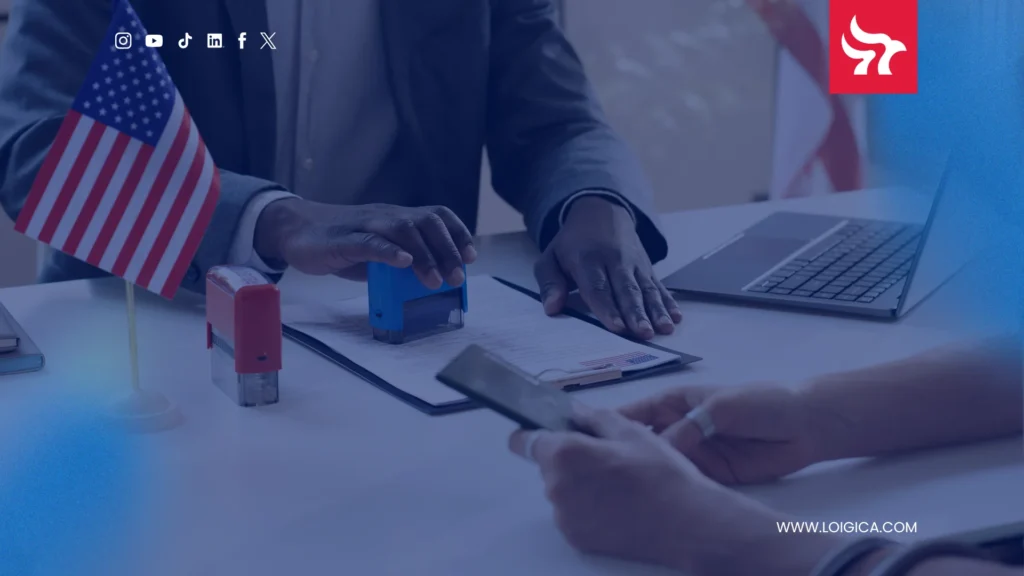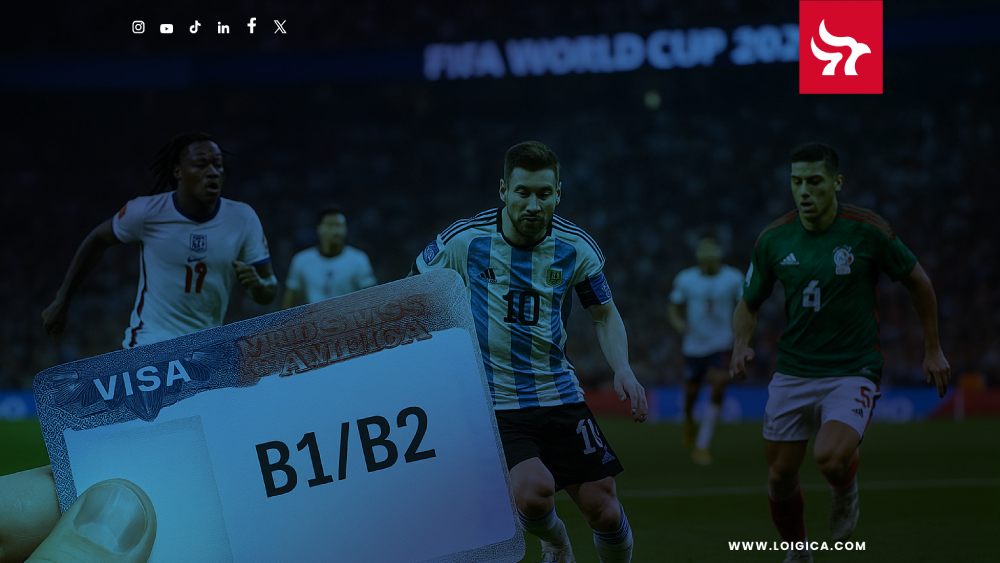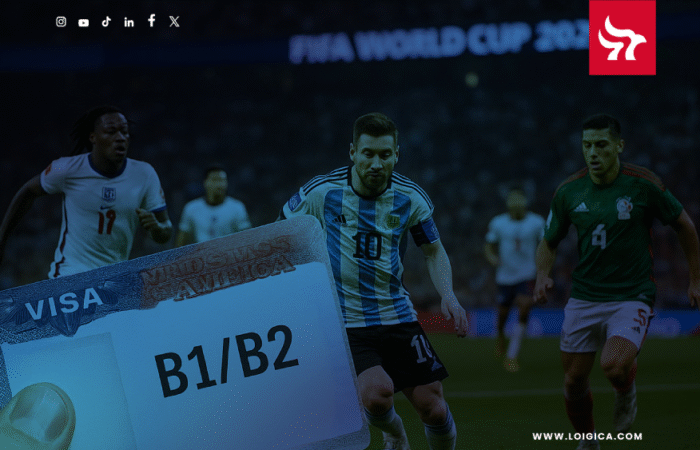The FIFA World Cup 2026 will be a unique opportunity for millions of people to attend this historic event, especially those who dream of experiencing it in the United States, one of the host countries. However, before making plans, it’s crucial to understand the available immigration options to legally enter the country. In this article, we’ll explain the differences between tourist visas and other immigration options, with relevant data and clear examples to help you determine the best choice for your trip.
Tourist Visa (B-2): What is it and what does it serve?
The B-2 visa is a non-immigrant visa for individuals who wish to enter the United States temporarily for tourism, recreation, or medical treatment. If your primary goal is to attend the FIFA World Cup 2026 as a spectator, the B-2 visa is the ideal option. This visa is commonly requested by tourists, as seen in the famous movie “The Pursuit of Happyness”, where the protagonist, played by Will Smith, pursues a dream in the United States, similar to how many fans seek the opportunity to attend events like the World Cup.
Requirements for the B-2 Visa:
- Purpose of the trip: You must demonstrate that your visit is temporary and is made for recreational purposes, such as attending the FIFA World Cup.
- Proof of sufficient funds: You will need to prove that you have the necessary resources to cover your stay without needing to work in the U.S. For example, the average cost for a trip to the U.S. to attend large events like this can range from $2,500 to $5,000 USD per person, so you must provide clear evidence that you can cover those expenses.
- Ties to your home country: Similar to the characters in “The Devil Wears Prada”, where they realize the importance of stability in their personal and professional lives, you must show that you have reasons to return to your home country, such as a stable job, property, or family.
Tourist Visa vs. Business Visa (B-1): What’s the difference?
It’s common to confuse the B-2 visa with the B-1 visa, especially in cases where business and tourism are combined. Here are the key differences:
- B-2 Visa: This is for those traveling for recreational purposes, such as attending the FIFA World Cup. It’s like the characters in “La La Land”, who seek a unique and magical experience in the U.S.
- B-1 Visa: This is for those traveling for business purposes, such as attending meetings, negotiations, or conferences. If you’re planning to travel to the FIFA World Cup and, at the same time, conduct business activities related to the event (such as sponsorship negotiations), then the B-1 visa might be more suitable.
If your main purpose is to enjoy the FIFA World Cup 2026 as a spectator, the B-2 visa is the right choice.
Alternatives to attend the World Cup: is it possible to work or study during the event?
Some people may be interested in combining their visit to the FIFA World Cup with work or study activities. If this is your case, there are other visa options available:
- Work Visa (H-1B, L-1): If you plan to work in the U.S. while attending the FIFA World Cup, you will need a work visa. The H-1B visa, for example, is issued to professionals in specialized positions in the U.S. This is similar to what we see in “The Social Network”, where the characters develop businesses in the country, and this type of visa could be useful for those with a job offer while attending the event.
- Student Visa (F-1): If you plan to study while in the U.S. and then attend the event, the F-1 visa is the appropriate choice. This is similar to what we see in “Legally Blonde”, where the protagonist combines study and personal life.
Tips for the visa application process
If you decide to apply for the B-2 visa, here are some tips to increase your chances of success:
- Prepare Your Documents: Make sure you have all the required documents, such as proof of funds, ties to your home country, and a clear itinerary for your trip. On average, the wait time for a B-2 visa is 10 to 30 days, but it can vary depending on the embassy or consulate location.
- Consular Interview: Be honest and clear about your purpose of travel. Visa interviews are key, and just like in “The Pursuit of Happyness”, where every step was crucial to success, your interview will be decisive in obtaining the visa.
- Apply Early: The application process can take time, especially with high-demand events like the FIFA World Cup. It’s recommended to apply for your visa at least six months before your trip.
- The Best Option for FIFA World Cup 2026: B-2 Visa or Another Option? For most fans who wish to enjoy the FIFA World Cup 2026, the B-2 visa will be the most suitable option. According to the U.S. Department of State, over 9 million B-2 visas were issued for tourism purposes in 2022, which shows it’s one of the most common options for those traveling for leisure.
If you have other plans, such as working or studying while attending the FIFA World Cup, then the B-1, H-1B, or F-1 visas might be more appropriate for your situation.
Conclusion
If your goal is to attend the FIFA World Cup 2026 and enjoy the event, the B-2 visa is the most appropriate choice. If you have other plans, such as working or studying, there are other options that may be more suitable. To ensure that you choose the correct visa, it’s always advisable to consult with an immigration attorney. Enjoy the FIFA World Cup with peace of mind and no legal setbacks!
Sources and references:
- U.S. Department of State – B-2 Visa: https://travel.state.gov/content/travel/en/us-visas/tourism-visit/visitor.html
- U.S. Citizenship and Immigration Services – Visa Information: https://www.uscis.gov/
- FIFA – Information on World Cup 2026: https://www.fifa.com/worldcup/
If you need help determining which visa is right for your trip to the FIFA World Cup 2026, LOIGICA is here to assist you. Our immigration attorneys have the expertise to guide you through the process and ensure everything is in order so that you can enjoy the event without any issues. Contact us today!
This blog was written with asistance of generative AI. It is provided for informational purposes only. It does not constitute legal advice. The information presented here is based on general principles of U. S. immigration laws, as well as general information available for public search on public matters, as of the date of publication. Immigration laws and regulations are subject to change and individual circumstances may vary. If you need expert counceling on immigration matters, contact one of our attorneys.

What Is a Writ of Mandamus – How It Helps When USCIS Delays Your Case?

What Is EAD — And Why Owning an LLC Doesn’t Mean You Can Work in the U.S.


